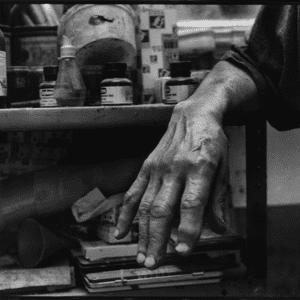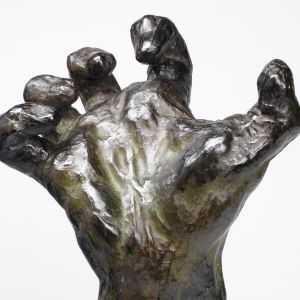As humans we all share the desire to make our mark on the world around us, to draw on a pristine beach or disturb snow-covered ground. We have developed many ways to signal our presence to others, some universally accepted, others less so. Street art has been seen as a form of symbolic conquest, a way of staking claim on public spaces. Coats of arms, inscriptions and stamps on surfaces are other, historical ways to signal ownership.
Touch between humans is also about making connections. Tactile interactions are crucial for healthy development in children. They soothe, comfort, and create lasting bonds. Suddenly losing the ability to experience the world through touch can be distressing and isolating, compelling us to adapt and relearn.
Touch can be experienced negatively, as sensory overload. Because of its powerful emotional impact, people consider inappropriate touch to be much more harassing than verbal behaviour. Touch is essential, but so is consent.



.jpg?key=directus-medium-crop)











